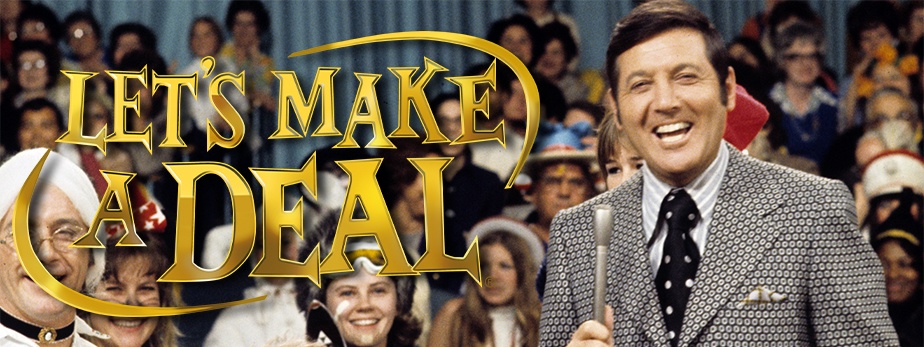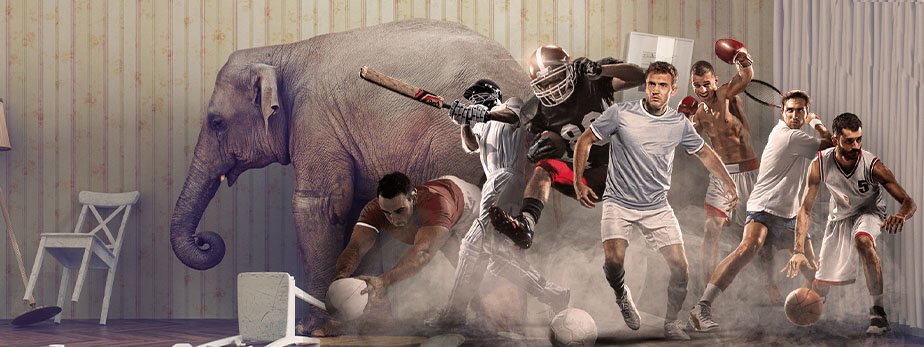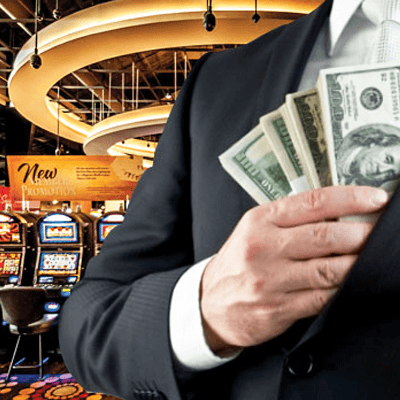I’ll Take The Goat, The Monty Hall Problem
Although it is a difficult concept to get to grips with, there is a world of difference between a betting system and a gambling strategy. A betting system is loosely based on the assumption that past events affect future results, coupled with a level of emotional input. In contrast, a gambling strategy looks at each event independently and logically.
There are some classic examples of how probability and statistics have a part to play in your betting strategy, and they do work. There are also some betting systems out there which many gamblers have tried that are frankly a recipe for bankruptcy.
Anyway, I have put together a few brief examples for you to look at and some things to try out for yourselves, as well as explaining why one particular system is something you perhaps shouldn’t try at home.
The Monty Hall Problem
Going back to the 1960s, a TV presenter named Monty Hall hosted a show called ‘Make A Deal’ and the concept behind the final stage of the show was incredibly simple. Said finalist is faced with three doors, armed only with the knowledge that behind two of the doors there are goats and behind the third, a brand new car. All he has to do is select the right door to win that car.
The contestant is invited to choose a door, which remains closed, and the host opens one of the other two doors, which (always) reveals one of the goats. The contestant now gets to choose whether he wants to stick with his original selection or to swap for the other unopened door.
Throughout the series, it was established that the contestants who swapped doors, won more cars than those who did not. Why is that?
In all honesty, this is a question which has confused the hell out of PhD-level mathematicians for years and it does take a bit of time to get your head around it. Mainly this is because you have automatically assumed that the two remaining doors carry an equal (50/50) chance of the car being behind one of them.
If you think that is the correct answer, then you are not alone, but you are not right either. The reason is that you have not applied the impact of new information to the scenario, the part that tells you the host is NOT going to open the door with the car behind it, which changes the probability factor.
Still unsure? Then try out the game for yourself.
What Exactly Are Independent Events?
Separating the expectation of what they think is most likely to happen from the mathematical probability of an event outcome is a major stumbling block for many bettors. For example, if you toss a coin and get six consecutive heads it does not follow that getting a tail on the seventh toss is more likely, it is an entirely independent event and the probability is still 1/2.
The same applies for roulette, no matter how many times the same colour (black for example) has come up, there is still an 18/38 chance it will come up again because each spin of the wheel is an independent event; what has happened previously is irrelevant to the outcome of the next spin.
Try This:
Take two coins, one silver and one copper; let’s say a 10p and a 2p.
You are shortly going to ask a family member, a friend (or random dude in the pub) to toss both coins, so let them check they are legit first.
Next, you tell your ‘audience’ that you will know whether the second coin is heads or tails, without seeing either coin and ask them to place a stake (which you agree to double if you are wrong)!
The only rule is that if your participant has revealed two tails, the bet is void.
Once the two coins have been tossed, if the participant says he has a head on the first coin, you will tell him that the other coin is tails.
You will not be right every time, but you will win 66% of the time by virtue of probability.
You can see the mathematical nuts and bolts of exactly how this works here.
Statistical And Analytical Decisions
There are some events where statistics, rather than just probability, do play a part. The examples that readily spring to my mind are football, horse racing and greyhound racing. All of those sports have a profusion of analytical data readily available to any sports bettor that cares to look for it.
If you think that this type of in-depth data is going to help you, you could over time use it to create your own ‘system’. It could be done using a simple Excel spreadsheet, or there is custom software available to enter your data. You can even subscribe to companies that will create ready-made statistical information on just about any aspect of any sport you can imagine.
However, no matter how accurate that data is, it is merely an analysis of historical facts, which are always helpful, but what it cannot account for is the future. So, if you take a racehorse or greyhound, you can find out a lot about it from its previous form. But the probability of it winning on any given day or at a particular racetrack is another matter entirely and the same applies to the performance of a football team.
Don’t Try This at Home: The Martingale System!
Let the user beware. The martingale (not to be confused with the leather version that horses wear) is a gambling system that has been around since the 18th century, and I really fail to understand why it was not blown out of the water a long time ago.
The martingale is most often used in casinos but can be applied to any betting. It is termed a ‘progressive’ system and the way it works is that you decide on a stake amount of £5, for example, and place a bet. If you win, you place another £5 bet, if you lose then you double the stake on the next bet and so on.
The theory is that over time, your winnings will exceed your losses, but there is more than one flaw in that plan. Firstly, you need a lot of money to carry it through as even with a modest £5 stake, after four losses your next bet is £80 and you have already lost £75.
Secondly, depending on where and on what you are betting, you are also likely to exceed the maximum bet permitted and in a casino setting, there is the house edge to account for as well.
Author’s Note:
For myself, I’ll stick with picking my horses or greyhounds based on how they look in the parade ring and I’ll always assume that Manchester United are going to win a football match as I’m a lifelong fan.
Not all of us are mathematically minded and prefer to enjoy our sports for what they are, but for those who like numbers, there are ways and means of increasing your chances of success.
PS. I have a perfectly good car, but a new goat would make a welcome addition to my smallholding, so in that scenario… I’ll take the goat…

Tracy started writing for us in early 2017 and is a crucial player within our team. She’s the editor of our Blog and regularly writes other articles. Tracy’s online gambling insights are born out of years of real-world experience as a Croupier overseeing table games.

 Blog Home
Blog Home
 Privacy Policy
Privacy Policy
 About Us
About Us








